The health sector recommends the use of fortified foods to improve the quality of meals.
The role of micronutrients
Micronutrients are essential substances for the body, playing an important role in energy production, supporting immunity, enhancing health and participating in a number of other processes. Micronutrients include: vitamins (A, B, C, D, E, K...) and minerals such as iron, zinc, copper, calcium, phosphorus, iodine... Most micronutrients are not produced by the body but must be supplemented from food. Vitamins are organic substances created from foods of plant and animal origin, which can be broken down by heat, acid or air. Minerals are inorganic substances, existing in soil or water and cannot be broken down. When eating, the body consumes vitamins that foods from plants and animals create or minerals that they absorb.
Sharing at the scientific workshop "Improving knowledge of immune nutrition in the period of 2022 - 2024" organized by the Ministry of Health in the province, MSc. Dr. Duong Cong Minh - Head of the Department of Nutrition and Dietetics, Children's Hospital, Ho Chi Minh City said: Each person's body needs less VCDD than macronutrient groups (protein, fat, carbohydrates), but if deficient, health will be affected, causing malnutrition and diseases such as rickets, anemia, malnutrition, eye diseases or goiter...
According to the report of the Institute of Nutrition, in recent years, Vietnam has achieved remarkable achievements in improving the nutritional status of the people. The rate of child malnutrition has decreased quite rapidly and sustainably. However, the rate of stunting (height for age) in children under 5 years old each year is still high (24.3%) and there is a difference between regions, especially mountainous areas, difficult areas and rural areas with cities and plains. In fact, in the province, the rate of stunted children is still significant.
Some studies have assessed that one of the main causes is due to lack of VCDD. In particular, vitamin A is the main diet of Vietnamese people is rice, providing up to 60 - 70% of the energy of the diet. These diets are often deficient in high biological value protein, lysine, vitamins and minerals needed for children's development.
Vitamin A supplementation campaign
The World Health Organization and the Ministry of Health recommend that to prevent vitamin deficiency, it is necessary to eat a variety of foods, combine many types of foods, and choose foods rich in vitamin nutrients for daily meals. For children who need to be exclusively breastfed for the first 6 months, continue breastfeeding until 24 months of age or longer with appropriate supplementary feeding. Children's supplementary meals need to have foods rich in vitamin nutrients, add fat or oil to increase the absorption of vitamin A and vitamin D. Children of childbearing age should take high doses of vitamin A twice a year. Mothers should take a dose of vitamin A within one month after giving birth. Children from 24 to 60 months of age should take deworming medicine twice a year. Practice food hygiene, personal hygiene, and environmental hygiene to prevent worm infections. Women of childbearing age and pregnant women should take iron and folic acid tablets or multivitamin tablets according to instructions.
Responding to the VCDD Day (June 1 and 2) in 2023, with the theme "VCDD is essential for the growth and development of physical strength, stature and intelligence, improving health and resistance of the body", the Ministry of Health organized the first high-dose vitamin A supplementation campaign in 2023 for children starting from June 1, 2023. The campaign will be held nationwide, with the drug source used donated by Vitamin Angel Organization (USA).
In the province, the provincial Center for Disease Control (CDC) has implemented a plan to organize a campaign to supplement high doses of vitamin A for children aged 6-35 months. At the same time, supplement women after giving birth within 1 month and children at risk of vitamin A deficiency (with prolonged diarrhea, severe malnutrition, respiratory infections and measles) with adequate doses of vitamin A.
According to Deputy Director of the Provincial CDC Pham Hong Thai, in order to effectively implement the high-dose vitamin A supplementation campaign in the province, health stations are screening all children of age who need to take vitamin A and those who have not taken it to ensure that no subjects are missed. Grassroots health workers go to households to propagate the purpose and significance of the campaign, in order to raise awareness and change positive behavior of the people. According to the plan, on June 6 and 7, 2023, 100% of commune, ward and town health stations in the province will simultaneously organize the first high-dose vitamin A supplementation campaign in 2023.
“VCDD is essential for the growth and development of physical strength, stature and intelligence, improving health and resistance of the body. In particular, vitamin A deficiency causes many negative consequences for the intellectual and physical development of children in later years. In addition to the short-term solution of taking VCDD supplements such as high-dose vitamin A capsules, multi-micronutrient tablets... using VCDD-fortified foods to improve meal quality is still the most basic and long-term solution.” (MSc. Dr. Duong Cong Minh - Head of Department of Nutrition and Dietetics, Children's Hospital, Ho Chi Minh City) |
Article and photos: Phan Han
Source link


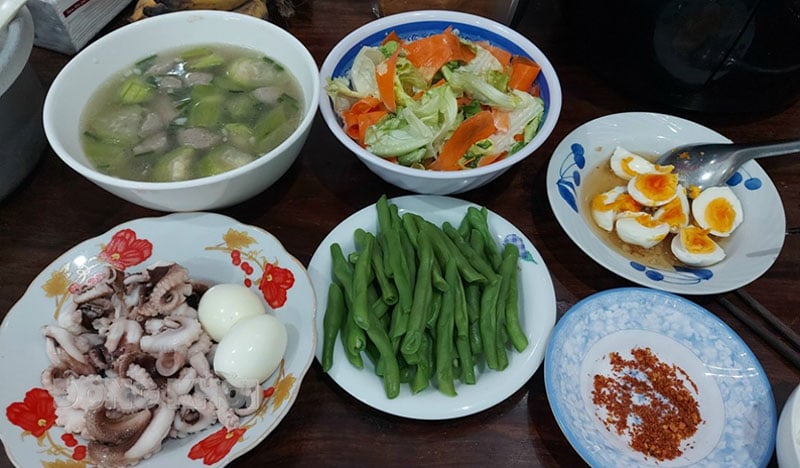









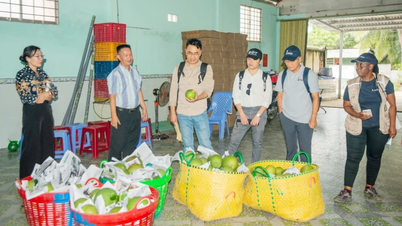








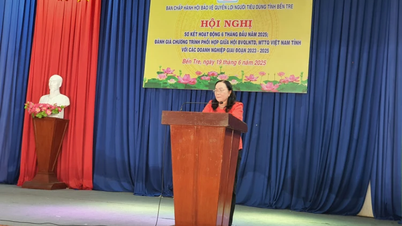

























































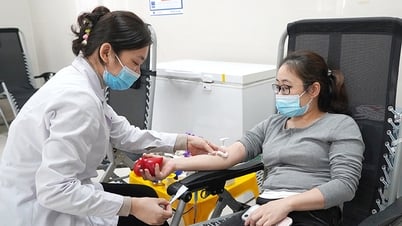




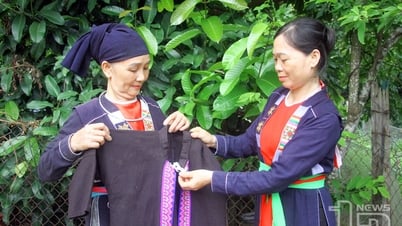
















Comment (0)